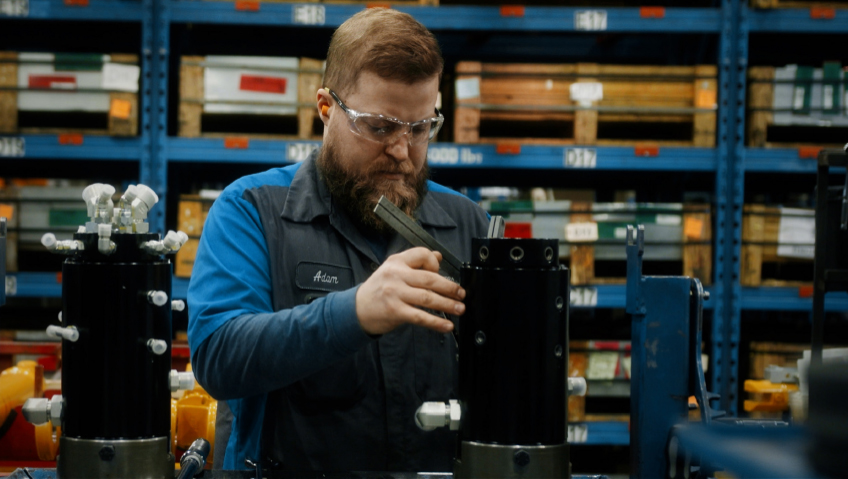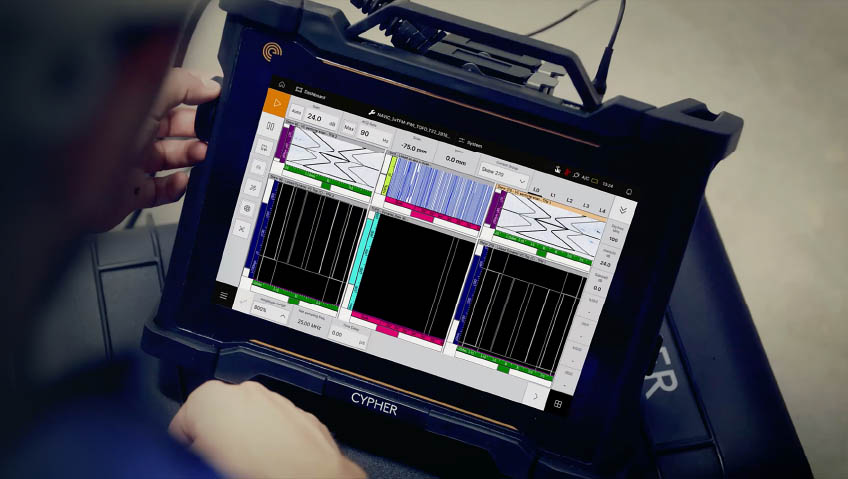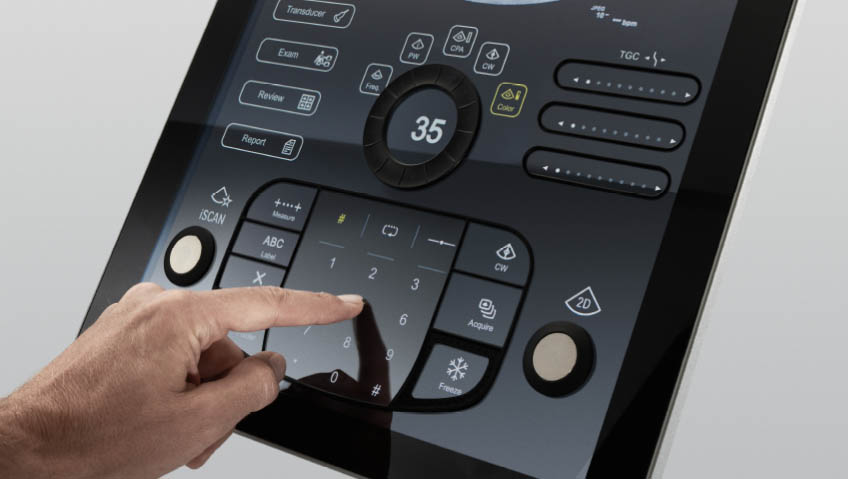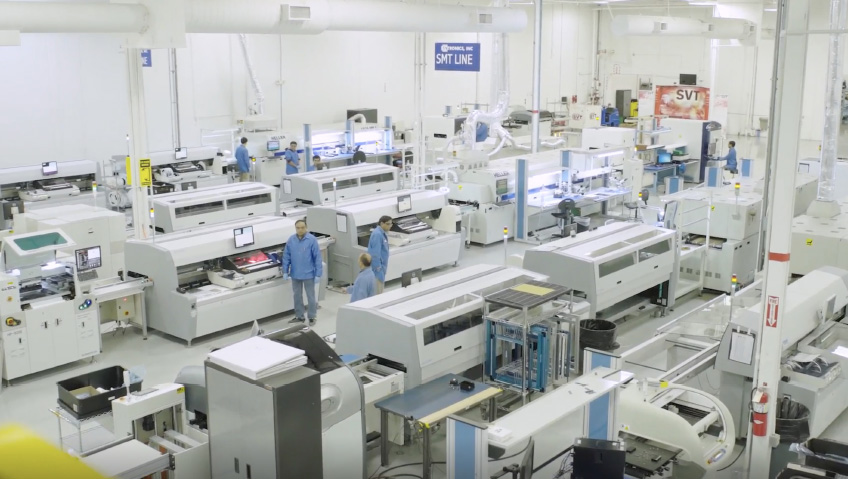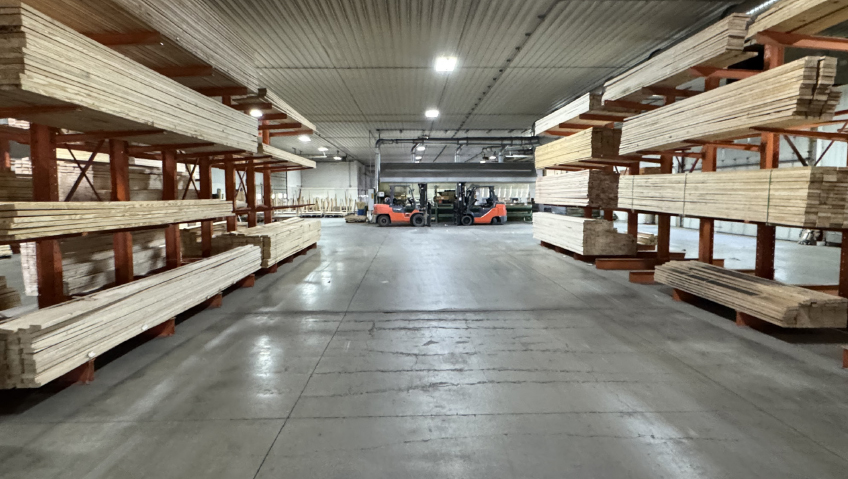Hydraulic equipment supplier and machining facility Hydra Dyne Technology is based in Ingersoll, Ontario, Canada. Established in 1992 by its three original partners, the company began by repairing hydraulic cylinders; however, the team saw limited initial sales and decided to move into the production side of the industry.
In December 2014, Hydra Dyne Tech became a sole proprietorship, more than doubling sales over the next five years. As Hydra Dyne Tech doubled in size, the controlling shares of the company were eventually sold to the Italian multinational “Interpump Group” in 2019. Interpump Group is a world leader in the hydraulic components sector, as well as the water jetting sector.
After finding success in hydraulic cylinder production, Hydra Dyne Tech’s product range gradually grew over the decades before spreading further into control and rotary manifolds. Today, the company is heavily involved in cylinders, rotaries, manifolds, and electrical slip rings with position sensing. Hydra Dyne Tech has built a proprietary cylinder positioning system that can be adapted to any conventional cylinder construction. Additionally, a new product release is scheduled for late 2022, which includes a full CRN certified accumulator product line.
Hydra Dyne Tech’s goal is to build reliable, long-term systems to continue to serve its customer base of global original equipment manufacturers (OEMs).
President Steve Bohner observes that multi-national corporations in the industry typically build large volumes of the same product, a practice with which Hydra Dyne Tech does not identify. Instead, the company has found its niche in building for two hundred to five hundred machines per year, carving its name and know-how into sectors that include engineering, parts, and forestry.
The hydraulics and services provided by the company are largely for extremely demanding applications belonging to heavy-duty and intensive cycles like forestry. For example, an excavator will usually travel for around seven percent of a construction cycle whereas a forestry vehicle will travel around 85 percent of its life, especially across rough terrain and steep slopes.
These machines will generally operate constantly so they must be designed differently than equipment used less often, which is where Hydra Dyne Tech’s niche within manufacturing comes into play. General Manager Rick De Jong adds that the company’s solutions have specific designs, and its market has been in both designing and manufacturing parts exactly to any customer’s specification. This is something that is missing from larger firms.
Along with its reputation for adhering to specific customer designs, Hydra Dyne Tech has also become known for several innovative technologies that have improved many aspects of the company. One of these is LocSeal™, a sealing component developed in the mid-1990s for rotary manifolds. The company originally tried to find a manufacturer that would make a seal to its specifications, which was an industry rarity some three decades ago. It instead opted to purchase a machine to make its own seals. The process involved working with material compound manufacturers.
Bohner mentions that there is a lot involved to make a rubber or urethane component, and working in this arena is another example of the company’s intensive and involved processes. Since its development, LocSeal™ has set Hydra Dyne Tech apart from its competitors and helped put it into a league all its own.
Another great aid to Hydra Dyne Tech has been Invaware, a sister company founded around 2015. The new business endeavour came about as company heads realized the requirements needed for their shop floor are inherently difficult to document, as the jobs are generally quite technical and machine setups must be accurate, quick, and cost-effective. At the time, Hydra Dyne Tech wanted to save and retain its shop floor knowledge for its next generation of workers, ensuring new hires could become productive in the shortest time possible. To their disappointment, Hydra Dyne Tech found systems that existed in the market were not conducive to a shop environment.
The team recognized this was also a challenge for their industry, especially as forward-thinking operations sought to push their critical information online. Bohner led the development of a digital document and knowledge sharing platform, now known as DropDoc. This web-based solution was enlisted to provide access to documents quickly in the shop setting, capture tribal knowledge in real time, and exponentially decrease the amount of time it takes for Hydra Dyne Tech’s new hires to come onboard.
“In our business, we sell time,” he says. “We have to make something in a certain amount of time.” Human Resources Director John Magee agrees that if the knowledge of the current and past generations of Hydra Dyne Tech workers are not retained in some way, it is in danger of disappearing so information must be pulled from all generations, and Invaware is a great help in this.
In very recent years, DropDoc is also responsible for digitizing safety checklists. The system notifies supervisors immediately of anything incorrect and avoids checks that are not as thorough as they could be. Another added bonus of DropDoc is the fact that it provides an easy way to record “how to” instructions and store machine manuals—keeping all maintenance records handy for future reference to all of those with a license to DropDoc’s basic setup.
DropDoc also represents a more organic way to gather intellectual property. As De Jong explains, in a transient environment like today’s marketplace, a business must capture the knowledge of its most veteran workers and talents, for fear that it be lost forever to a younger workforce that needs it. This way, learning can continue thanks to the compiled information from people no longer in the industry. De Jong classifies DropDoc as nothing short of a digital revolution.
These new technologies have helped Hydra Dyne Tech stand out in the marketplace, allowing it to pursue personal relationships with its customers. An important part of these relationships is that the company knows what the customer is looking for in any job. Bohner expresses that it is important to him that Hydra Dyne Tech understands what piece of equipment is needed and how long it will last, as well as the customer’s expectations.
“Every part that you manufacture must be perfect,” he says. “You have someone’s livelihood in your hands when the customer purchases [that part].” Personal effort is put into the components manufactured, so the company must be nimble and flexible in its manufacturing process to account for this, as well as clever in the light of the industry’s post-COVID environment.
Bohner sees the industry as in a bit of a tumultuous state currently, as people in the industry rarely stay past the five-year mark. New onboarding processes provided by systems like DropDoc are a tremendous help, as it can otherwise take more than a year for workers to become truly productive. A person’s information and talent must be harnessed as quickly as possible because, as Bohner stresses, “We can buy machinery [and] design things, but if we can’t make it, it’s all useless.”
There is also less skilled labour entering the workforce as even community colleges are struggling to put financial support into courses needed for machining and metalworking. There is a need to make the environment understandable because, if an organization is too difficult to manoeuvre, the ability to gain workers is severely hampered.
Hydra Dyne Tech will be spending the next year dealing with the lack of components and materials resulting from pandemic-related logistics issues. Bohner feels that the market will eventually settle but will not lead to huge, immediate growth as seen before; as every manufacturer is facing issues in labour and the supply chain, and these will take time to fix. Having come out the other end of a tumultuous pandemic period for all industries, the outlook is measured but positive for Hydra Dyne Technology as it continues to establish and improve on the personal relationships that have allowed it to continue excelling in manufacturing since 1992.

